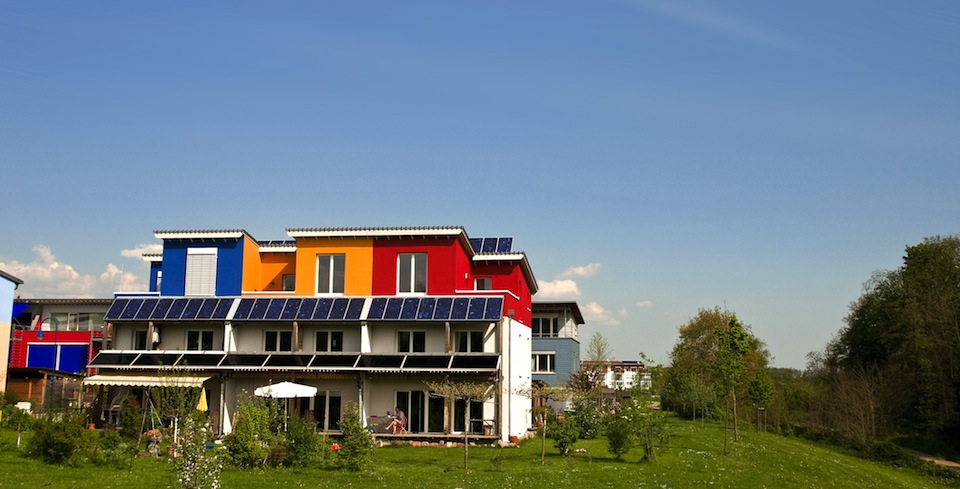Ontario’s green energy plans have been modelled on the success of Germany’s national program to switch to renewable, non-carbon energy sources. The Feed-in Tariff Program, Green Energy Act legislation and decommissioning of coal generating stations are all part of the provincial government’s push to emulate similar German initiatives.
Ontario’s green energy plans have been modelled on the success of Germany’s national program to switch to renewable, non-carbon energy sources. The Feed-in Tariff Program, Green Energy Act legislation and decommissioning of coal generating stations are all part of the provincial government’s push to emulate similar German initiatives. On October 10, 2013, energy professionals attended a breakfast seminar organised by the Canadian-German Chamber of Industry and Commerce. The seminar, held at Toronto’s MaRS Discovery District, explored Germany’s efforts to decarbonize its energy sector compared to Ontario’s approach to clean sustainable energy. The German government has been endeavouring to export its renewable energy innovations to other markets in Europe and North America; for example the Transatlantic Climate Bridge program supports platforms and partnerships that help Americans and Germans exchange best practices and develop joint solutions.
While Ontario continues deliberations for its Long-Term Energy Plan, the German government created its own long-term plan several years ago, titled Energy Concept 2050. This ambitious plan calls for a reduction in GHG emissions of 40 per cent by 2020 and 95 per cent by 2050 (compared to the 1990 baseline). In large part this will be driven by an acceleration of renewable energy use; by 2020 renewables are to have a share of at least 35 per cent in gross electricity consumption and 80 per cent by 2050. This plan is popular amongst German citizens and there is no political opposition. German solar output is rapidly increasing and in July 2013 a new world record was set when 5.1 terawatt-hours were generated (the US generated a lacklustre 0.764 TWh in May 2013).
When German Consul General Walter Stechel spoke to the crowd, he noted the strategy for effective smart grids: the grid itself (interconnections, generation), management of the grid (via demand response and forecasting), and energy storage (water pumps, batteries and CH4 gas plants). Germany’s plans for a smart electricity grid combine the push for de-carbonization and transition to renewable sources with three other key objectives. These are increased efficiency and energy conservation, a reduction of energy required for heating (by use of heat pumps) and transportation (electric/methane vehicles).
To better predict market conditions for renewable generation Germany has significantly improved its weather and power forecasting abilities. Likewise the Independent Electricity System Operator (IESO) in Ontario has improved wind forecasting. 24-hour forecasts now have a 93% accuracy rate and in September the IESO launched a new wind and solar dispatching system. As part of its visibility strategy a new interactive mapping tool allows Ontarians to see the current wind output and the supply forecast for the next 48 hours.
Energy storage has typically relied upon either batteries (electric vehicles as well) or water pumping. An interesting aspect of the German plans uses surplus renewable energy to create methane in a process being pioneered as power-to-gas. Earlier this year German automaker Audi opened a 6MW plant which combines CO2 and H2 through electrolysis to produce methane. In a media release an Audi spokesperson commented, “The power-to-gas facility… can become a beacon project for the entire energy revolution, far beyond the boundaries of our company.” Carbon-neutral methane energy storage can be used to fuel gas plants when demand is high, replacing natural gas. These kinds of innovative energy storage solutions are required in a volatile renewables-driven supply mix, and can also be applied to transportation, as Audi has anticipated.
Coincidentally, as the seminar was wrapping up the Ontario government publicly announced that it was cancelling plans for new nuclear reactors at the Darlington generating station. This move comes as the Province released results from an online survey for the Long-Term Energy Plan. Although the sample size was very small (only 7,000 respondents) the results offer a glimpse of voters’ opinions on the energy supply mix. When asked about the future supply mix a majority of people wanted further cuts to GHG emissions, but paradoxically answered strongly to wanting low-cost energy sources and a considerable percentage questioned whether “green energy is our best option.” While Germans are strongly in favour of renewables, there is still considerable work ahead for the government here to convince Ontarians that this is the best path forward. Conservative and anti-wind movements have gained popularity in some regions, hampering the transition to a low-carbon smart grid.
Germany has seen its renewable energy program flourish. Many participants at the breakfast seminar noted that the main difference between Germany and Ontario is in their approach: Germany is more government-driven whereas Ontario has relied on the free market. It was agreed that although the approaches and philosophies may be somewhat different, both economies are going in the same direction. Seminars and discussions such as this one serve to strengthen efforts to de-carbonize the energy sector at a time when it is most urgently needed.
Dan is an environmental professional currently living in Toronto. Dan has previously published in Municipal World and Environmental Science and Engineering. He specializes in energy, transportation, and climate change policy, corporate sustainability, and environmental planning and assessments. He recently completed a Masters of Environmental Applied Science and Management at Ryerson University and has a Bachelors' degree in Environment and Business from the University of Waterloo.












